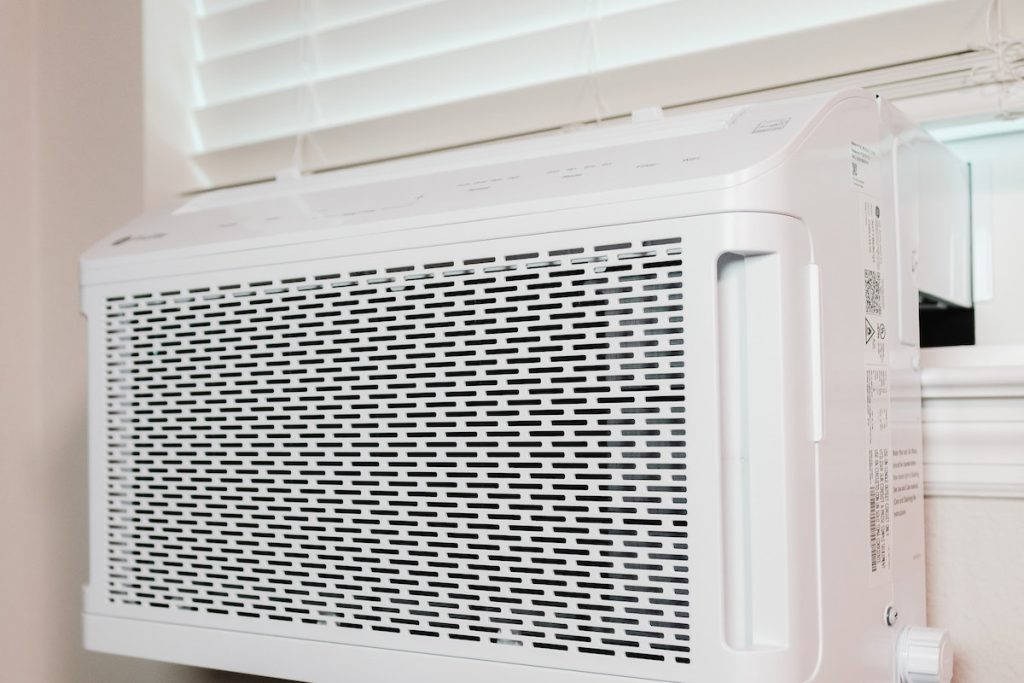Introduction
Air conditioning, an integral part of modern life, offers comfort and a means of survival in extreme temperatures. Traditionally, air conditioning systems have relied on venting to regulate room temperatures. However, with the advent of technology and the drive towards more sustainable practices, the ventless air conditioner has emerged as a viable alternative. This guide aims to shed light on the workings, benefits, and drawbacks of ventless air conditioning.
In today’s world, where climate change and energy efficiency are paramount, finding efficient cooling solutions becomes increasingly important. The quest for sustainable practices transcends various sectors, including home and office cooling. With their unique operating principles and advantages, ventless air conditioners offer a promising avenue for those seeking to balance comfort with energy conservation. Their potential impact on reducing carbon footprint and technological innovation underscores their relevance in the contemporary discourse on efficient climatization solutions.
What is a Ventless Air Conditioner?
A ventless air conditioner, also known as a portable evaporative cooler, is an air conditioning system that does not require an external venting system. Unlike conventional air conditioners, which pull in outdoor air, cool it, and expel hot air outside, ventless air conditioners utilize the natural evaporation process to cool the air. They contain a water reservoir or a pad soaked in water, which, when circulated by a fan, evaporates and consequently cools the surrounding air. This simplified mechanism allows for greater energy efficiency and portability, making ventless air conditioners among the best air conditioners for both residential and commercial use.
How Does a Ventless Air Conditioner Differ From Traditional Air Conditioning Systems?
Traditional air conditioning systems operate on a complex refrigeration cycle mechanism. The process starts by using a compressor to pump refrigerant between two heat exchanger coils. The refrigerant expels heat and cools down in the first coil, located outside the building. This cooled refrigerant then travels to the second coil inside the building, absorbing heat from the indoor air and cooling the room. This heat is pushed outside through vents; an external venting system is needed.
In contrast, ventless air conditioners utilize a simpler, more energy-efficient process known as evaporative cooling. They do not require refrigerant or external venting. Instead, they cool the air by evaporating water from a wet pad. The fan in the unit then circulates this cooled air throughout the room. This process is inherently more energy efficient as it consumes less electricity than traditional AC systems. Additionally, due to their portability, ventless air conditioners offer flexibility in cooling individual rooms, providing targeted comfort where it’s most needed.

Working of Ventless Air Conditioner
The basic working principle of a ventless air conditioner revolves around evaporative cooling. A water reservoir or pad soaked in water is at the unit’s core. A fan inside the unit pulls in warm air from the room, passing it over the wet pad or through the water in the reservoir. As the warm air comes in contact with the water, it causes the water to evaporate. This process of evaporation absorbs heat from the air, effectively cooling it.
The same fan circulates the now-cooled air back into the room. This cycle continues, gradually lowering the room’s temperature. Unlike traditional air conditioning systems, no hot air is expelled outside, hence the term ‘ventless.’ This simplified working of an AC, in conjunction with fewer mechanical parts, allows ventless air conditioners to consume less electricity, making them a more energy-efficient option for cooling.
Cooling Without Traditional Ducts or Vents
Ventless air conditioning systems cool the air through a different mechanism than traditional air conditioners. Rather than relying on a complex refrigeration cycle that necessitates using ducts and vents to expel hot air outside, these devices leverage the natural evaporation process to cool the air. Importantly, they do not need ductwork or venting systems for operation.
The operation starts with a fan drawing warm air from the room and passing it over a wet pad or through the filled water reservoir. As the warm air comes in contact with the water, it causes the water to evaporate, which absorbs heat from the air and cools it down. The cooled air is recirculated back into the room, reducing the ambient temperature.
This non-reliance on ducts or vents gives these air conditioners their ‘ventless’ name, making them more portable and flexible than traditional systems. They can be easily moved from room to room and installed without needing external venting.
It’s worth noting that while ventless air conditioners are advantageous in terms of energy efficiency and convenience, they require a regular water supply to operate effectively, which could be a consideration in areas where water is scarce. Despite this, their unique cooling mechanism remains an innovative alternative to air conditioning.

Benefits of Using Ventless Air Conditioner (Home and Commercial Use)
Here are some benefits of ventless air conditioners for residential use:
- Energy Efficiency: Ventless air conditioners consume less electricity than traditional air conditioning units due to their simple evaporative cooling mechanism. This makes them a more sustainable choice, reducing energy costs and environmental impact.
- Cost-Savings: These units have fewer mechanical parts, which reduces the initial purchase cost and the cost of maintenance and repairs over the unit’s lifespan.
- Ease of Installation and Portability: Ventless air conditioners do not need any ductwork or external vents, making them easy to install. Their portable nature also allows them to be moved from one room to another as per cooling requirements.
- Improved Air Quality: Ventless air conditioners add moisture to the air, benefiting dry climates. They also tend to circulate fresher air as they continuously pull in air from the outside, cool it, and then push it back into the room.
- Less Noise: Unlike the traditional AC making noise, ventless units are known for quieter operation, contributing to a more peaceful home environment.
- Increased Comfort: As ventless air conditioners offer targeted cooling, they can cool specific areas or rooms, enhancing comfort levels.
- Environmentally Friendly: Ventless air conditioners do not use refrigerants, which are known to contribute to greenhouse gas emissions. This makes them a more environmentally responsible choice for home cooling.
- Zone Cooling: Ventless air conditioners provide targeted cooling, allowing for zone cooling and reducing the need to cool an entire house or office space.
Ventless air conditioners are not just beneficial for residential use. But they also offer a multitude of advantages in commercial settings:
- Energy and Cost Savings: Businesses can experience significant savings with ventless air conditioners. They consume less energy than traditional AC units, reducing utility costs. Moreover, their lower maintenance and repair costs further contribute to savings.
- Flexibility in Cooling: One of the key advantages of ventless air conditioners is their flexibility. They can be easily moved around to cool specific zones or areas in an office, making them ideal for businesses with varying cooling requirements.
- Improved Indoor Air Quality: Ventless air conditioners can help improve indoor air quality in commercial spaces. They constantly pull in fresh air, cool it, and circulate it back into the room. This can contribute to a healthier and more comfortable work environment.
- Reduced Maintenance Costs: As ventless air conditioners have fewer mechanical parts, they require less maintenance and repairs over time. This means lower maintenance costs for businesses.
- Enhanced Comfort for Employees and Customers: Ventless air conditioners offer targeted cooling, providing comfort to employees and customers in specific areas. This can improve employee productivity and customer satisfaction.
Pros and Cons of Ventless Air Conditioners
Here are the pros of ventless air conditioners:
- Energy Efficient: Ventless air conditioners utilize the natural evaporation process, which consumes less energy than traditional AC units’ conventional refrigeration cycle. This results in lower electricity bills and a more sustainable cooling solution.
- Cost-Effective: Ventless air conditioners typically have a lower upfront cost and require less maintenance due to fewer mechanical parts, leading to cost savings in the long run.
- Easy installation: As they do not require ductwork, ventless air conditioners are easier to install than traditional units.
- Versatile placement: Due to their portability, ventless air conditioners can be placed in any room or area where cooling is needed, making them versatile. It also means it does not require an air conditioner shade, which is necessary for traditional models.
Here are the cons of ventless air conditioners
- Limited Cooling Capacity: Ventless air conditioners are best suited for smaller spaces and may be less effective in larger rooms or areas. If you need to cool larger spaces, you may need to get a saddle air conditioner, which is also quiet and energy-efficient.
- May Not Be Suitable for Very Large Spaces: In larger spaces, ventless air conditioners may only provide localized cooling and may be less effective in reducing overall temperatures.
- Air Quality Concerns (if not properly maintained): Without regular maintenance, ventless air conditioners can become breeding grounds for bacteria and allergens, affecting indoor air quality.
Conclusion
Ventless air conditioners, also known as portable evaporative coolers, offer a unique and efficient approach to cooling. They operate using the natural evaporation process, making them more energy-efficient and environmentally friendly compared to traditional AC systems that use refrigeration cycles. Ventless air conditioners do not require any ductwork or external vents, which enhances their portability and ease of installation.
Furthermore, they provide cost savings due to lower energy consumption, fewer mechanical parts, and thus decreased maintenance needs. While they have advantages, including improved air quality and quieter operation, they are not limited. They may offer limited cooling capacity, particularly in larger spaces. Without regular maintenance, they can impact indoor air quality negatively. Nonetheless, their energy efficiency, cost-effectiveness, and flexibility benefits make them an appealing option for both residential and commercial settings.


